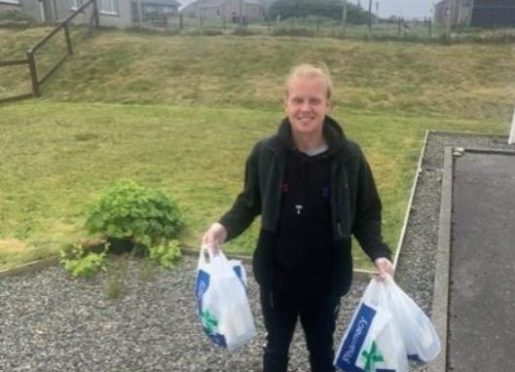A community landlord ensured vital information reached residents during the pandemic by become newspaper editors.
At the height of lockdown the Galson Estate Trust in Lewis took over a fortnightly community newspaper when staff were furloughed to get Covid-19 information and other news to a largely elderly population.
It was one of a number of initiatives by the trust to help residents, including a prescriptions and groceries delivery service and a series of WhatsApp groups to maintain contact with nearly 2,000 people across the 22 villages on the estate.
The 56,000-acre Galson Estate, which was bought by the community in 2007, is now one of six communities being examined in a project taking an in-depth look at why the community ownership model was so important to the response to Covid-19.
Community Land Scotland (CLS) has received £48,000 from the National Lottery Community Fund as part of the ‘Owning our Future’ project.
Lisa Maclean, chief executive of the Galson Estate Trust, said volunteers provided a delivery service when lockdown was imposed.
“Our demographic is mostly towards older people, and so, in the early phase of the pandemic, a large number of our residents were in shielding categories. The scale and speed of our community’s response was astonishing.
“We took over the community newspaper when its staff were furloughed, just to ensure communication was still going out to residents because a lot of older people in the area are not online.
“While we had loads of things on social media it became apparent that we couldn’t allow there to not be some form of hard copy communication.”
Volunteers produced the free fortnightly publication for more than three months until the regular newspaper returned.
“It allowed us to share all the usual things that were happening in the community and also Covid-19 advice. If we hadn’t done it I’m not sure how we would have reached some people.”
Ms Maclean said community owners are well placed to deal with crises like the pandemic: “With a community landowner you have that permanency, it’s not a project, it’s not something that’s there for a few years. It’s the community that has bought the land so they are much more stable than a lot of organisations and have a much longer vision.”
Also part of the project is Coigach Community Development Company in Wester Ross. During the pandemic it set up a crisis fund, using income from the community-owned wind turbine, to help some of the 270-strong population without work during the pandemic.
Development officer Julia Campbell said: “We were aware that some people were in dire straits because of the loss of income during the Covid-19 outbreak. Government assistance was on the way, but there was risk of a lag in getting that if you were eligible.”
Linsay Chalmers, development manager with CLS, said: “Over the past six months, we’ve seen how effective the community land model is during a crisis. Through this project, we will be able to dig a little deeper into the reasons behind that and explore any learning for wider society.”
